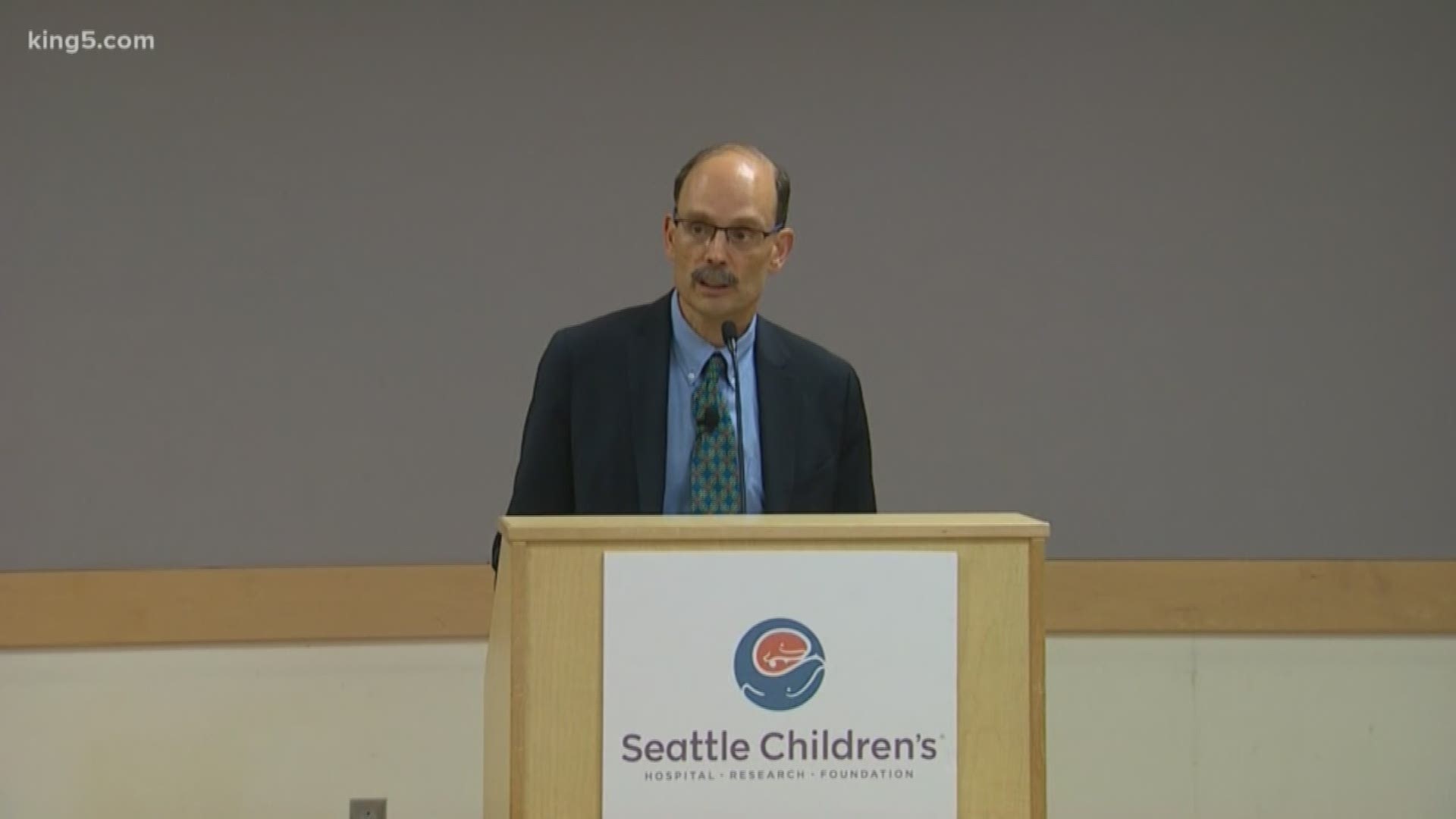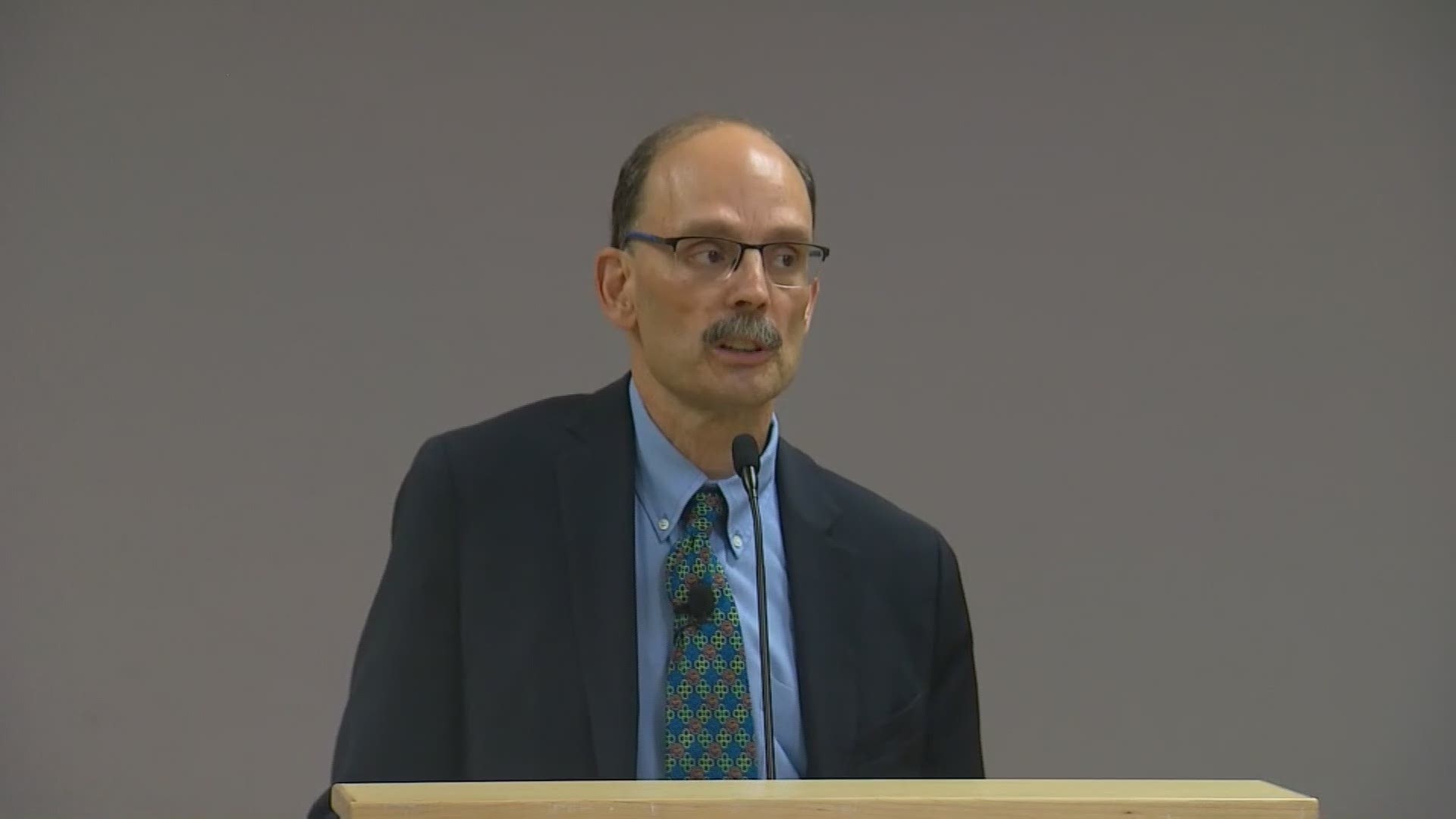Seattle's Children's will reopen operating rooms on Thursday, July 4 following inspections for mold.
One patient died from a mold infection contracted in an operating room. Five other patients were infected in the past two years.
Chief Medical Officer Dr. Mark Del Beccaro said all 14 main operating rooms have been inspected and approved for procedures.
Since May 24, Seattle Children's hospital closed all operating rooms while "air quality issues" were being investigated.
The hospital said in a statement, "We are deeply saddened that one of our patients died after developing an Aspergillus infection in 2018. Out of respect for privacy, we do not share details about specific patient cases. We want to reiterate that the risk of developing an infection for patients is very low."
The hospital continued, "The six patients who developed Aspergillus infections were at higher risk of infection due to the types of procedures they had."
Three patients developed surgical site infections from Aspergillus mold in 2018, including the patient who died. Three other patients developed infections this year.
The hospital originally closed four operating rooms on May 18 upon detecting the mold. The remaining operating rooms were closed on May 24.
Also on May 24, the hospital said they send roughly 3,000 letters to patients and families who had surgery at the main hospital in the past four months.
On May 28, the Washington State Department of Health (DOH) began a three-day investigation of Seattle Children's.
As a result of the investigation, DOH and Centers for Medicare and Medicaid Services (CMS) provided the hospital with statements of deficiencies.
CMS said it found more than two dozen violations of federal regulations, including:
- The hospital's failure to approve and implement an infection prevention improvement plan
- The failure to properly maintain air filtering systems that fed to operating rooms
- And the failure to inspect or calibrate air flow monitoring equipment to make sure it worked.
The report stated, "The failure to ensure oversight of the program that prevents infections puts patients, staff and visitors at risk of harm from environmental pathogens."
Seattle Children’s Chief Medical Officer Dr. Mark Del Beccaro responded to the report, "So what they found was some deficiencies in the documentation, which is not exactly the same as saying that something didn't happen. But if it isn't documented, it is their observation that we didn't have sufficient oversight."
Dr. Beccaro said the hospital sent a plan of correction to CMS on June 27. That plan has not been approved yet, but Beccaro confirmed all main operating rooms would reopen on July 4.
The hospital postponed approximately 1,000 surgeries and moved most other procedures to Harborview Medical Center, University of Washington Medical Center, Swedish Medical Center and Mary Bridge Children’s Hospital in Tacoma.
The hospital released the following list of "improvements and corrective actions" they have implemented to date:
- Decommissioned our previous air handling and purification system and switched to a newer air handler, which has been upgraded, cleaned and sanitized, and tested to verify proper performance.
- Installed and tested a new humidification system.
- Sealed potential sources of air leaks in all of the operating rooms.
- Extensively deep cleaned all of our operating rooms and their storage spaces several times, and we continue to follow our robust cleaning protocols in these areas each day.
- Added a new device to our operating room cleaning protocol that emits ultraviolet light to disinfect surfaces.
The hospital shared the following information for concerned parties:
If patients and families have questions, we invite them to call our Patient and Family Relations team at 206-987-2550 Monday through Friday, from 8:30 a.m. to 5 p.m. We will share additional information as it becomes available.
See the full statement from Seattle Children's following the announcement that operating rooms would reopen July 4:
On May 18, after routine air testing detected Aspergillus in several operating rooms and equipment storage rooms, we promptly closed the affected spaces and brought in outside industrial hygienists to investigate the source of the Aspergillus.
We self-reported the air quality issues to the Department of Health on May 20. We welcomed the Department of Health for a three day visit the following week. During their visit, the inspectors identified areas for improvement that we are addressing as part of our overall mitigation efforts. We are confident we will be able to successfully address their findings.
On May 24, we closed the remaining operating rooms after air testing continued to detect Aspergillus in several of our operating rooms. Closing the remaining operating rooms made it possible to physically access the air handling and purification system and address deficiencies that we believe were likely contributing to the air quality issues.
Also on May 24, we sent approximately 3,000 letters to patients and families who had surgery at the main hospital in the preceding four months, informing them of the air quality issues and advising them to watch for signs of infection. We continue to closely monitor patients who may have been impacted. Three patients developed Aspergillus surgical site infections this year and three patients developed infections in 2018. The six patients who developed Aspergillus infections were at higher risk of infection due to the types of procedures they had. We are deeply saddened that one of these patients died after developing an infection in 2018. Out of respect for our patients’ privacy we cannot share additional details. We want to reiterate that the risk of developing an infection for patients is very low.
Since closing our ORs six weeks ago, we have implemented multiple improvements and corrective actions recommended by outside experts. These include:
- Decommissioning our previous air handling and purification system and switching to a newer air handler, which has been upgraded, cleaned and sanitized, and tested to verify proper performance.
- Installing and testing a new humidification system.
- Sealing potential sources of air leaks in all of the operating rooms.
- Extensively and repeatedly deep cleaning all of our operating rooms and core rooms.
- Adding a new device to our operating room cleaning protocol that emits ultraviolet light to disinfect surfaces.
- As we continue to implement additional, long-term and enhanced maintenance to our air handling and purification system, we expect intermittent and routine closures of operating rooms.
Following implementation of these improvements and corrective actions, we have conducted extensive air testing to validate that our interventions have been and will continue to be effective. Air tests results confirm our interventions have been effective and that it is safe to re-open our operating rooms. We are taking a thoughtful and systematic approach to resuming operations in our main operating rooms, which will begin tomorrow.
Again, we are deeply sorry for the impact this situation has had on our patients and families.


